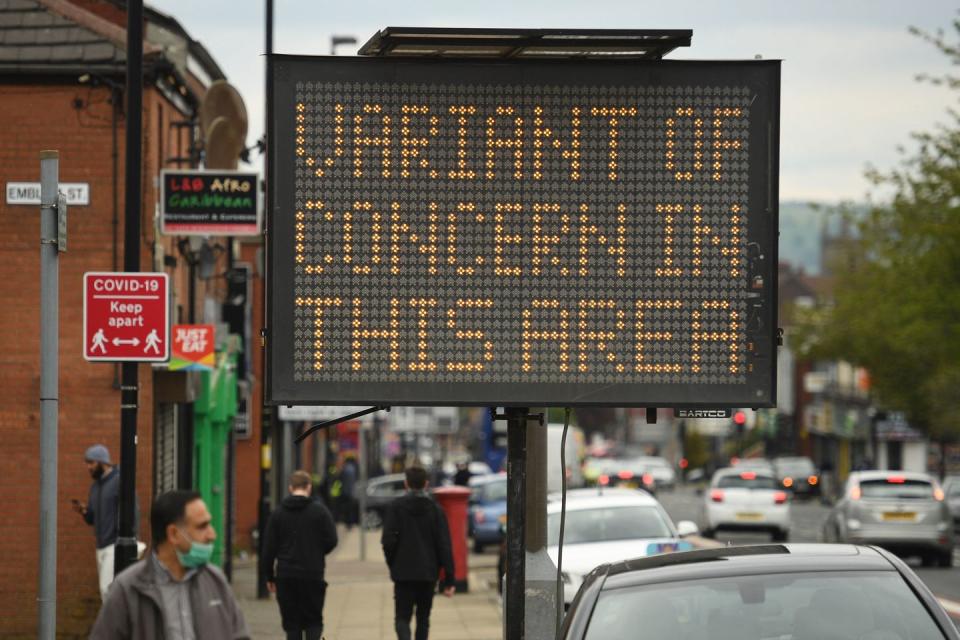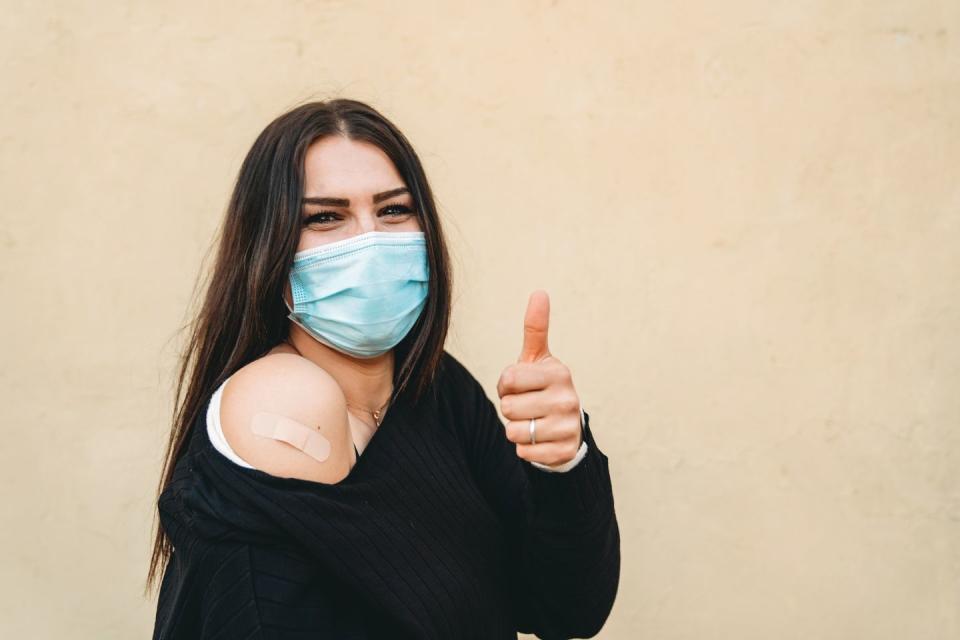The average age of COVID-19 patients now is 29

As the government's plan to ease coronavirus restrictions continues to keep pace, we're now on phase three of the four-step roadmap out of lockdown. However, despite the successful vaccine roll-out, many people are (understandably) worried about a new variant of COVID-19 that was first recorded in India. Currently, this new variant has seen Indian hospitals face a major backlog and many areas of the UK are now affected too.
Some scientists are warning that a total relaxation of the rules on 21 June is cause for concern, says the BBC, as the Indian variable is thought to be more transmissible. It has also not been confirmed whether or not those who are vaccinated will be protected against this new variant of the virus, however early studies suggest that the AstraZeneca, Pfizer and Moderna vaccines do provide immunity against it.
Recent data shows cases of the Indian variant in the UK have risen by 3,535 to 6,959 since last week, leading Health Secretary Matt Hancock to suggest as many as three-quarters of all COVID cases in the UK could be of that specific variant. Other statistics show that the average age of coronavirus cases across the nation is now 29, indicating that the Indian variant is particularly prevalent among young people. This is most likely because older generations have already developed immunity against the virus via vaccinations.
Since cases of the Indian variant began to spike in certain areas, surge vaccinations have been implemented to provide younger generations with protection sooner. Currently, the programme has now reached the stage where a jab is generally being offered to those aged 30 and over, and some 38 million have received their first dose already.

As for which areas of the UK are worst hit by the Indian variant, an interactive map created by the Sanger Institute (and funded by The Department for Health and Social Care Testing Innovation Fund and Wellcome) shows where in the country the Indian variant (more technically known as either lineage B.1.617 or lineage B.1.6172) is most prevalent. The data currently only reflects cases up until 15 May, meaning it has almost certainly spread further across the country since then, but it does show that cases are particularly high in:
Bolton
Blackburn
Bedford
Sefton
Wigan
Manchester
Nottingham
Leicester
Parts of London

The Department of Health and Social Care said they couldn't rule out the possibility of future local lockdowns, or increased restrictions in certain areas, but added that there was "no firm evidence yet to show this variant has any greater impact on severity of disease or evades the vaccine".
Vaccines Minister Mr Nadhim Zahawi said that the government is considering closing the wait time between doses of the vaccine for people who live in areas where the variant is spreading rapidly.
Zahawi continued on to say that pilot tests of vaccinating younger people in multi-generational households in Luton has so far proven successful. He also explained that ending all restrictions on 21 June is still very much dependent on the government's four critical tests being met, which include the vaccine being effective against any new variants and the roll-out continuing on in an efficient manner.
The information in this story is accurate as of the publication date. While we are attempting to keep our content as up-to-date as possible, the situation surrounding the coronavirus pandemic continues to develop rapidly, so it's possible that some information and recommendations may have changed since publishing. For any concerns and latest advice, visit the World Health Organisation. If you're in the UK, the National Health Service can also provide useful information and support, while US users can contact the Center for Disease Control and Prevention.
The latest issue of Cosmopolitan UK is out now and you can SUBSCRIBE HERE.
Like this article? Sign up to our newsletter to get more articles like this delivered straight to your inbox.
You Might Also Like

 Yahoo News
Yahoo News 